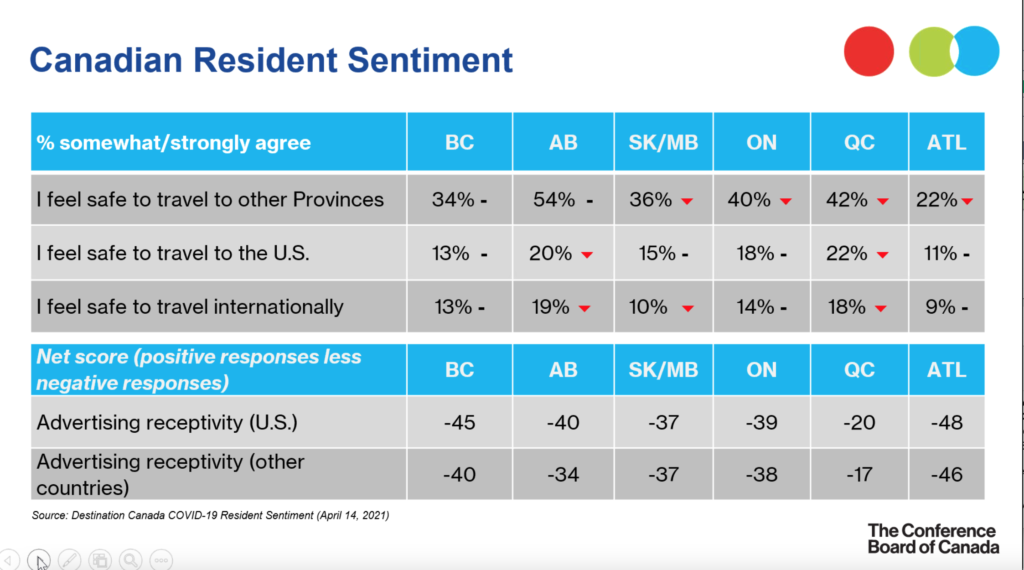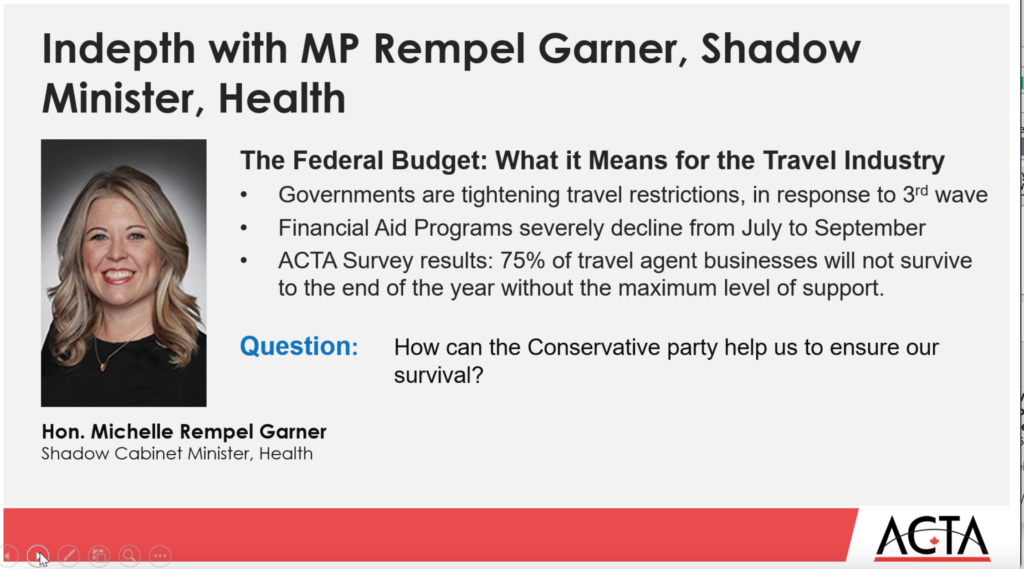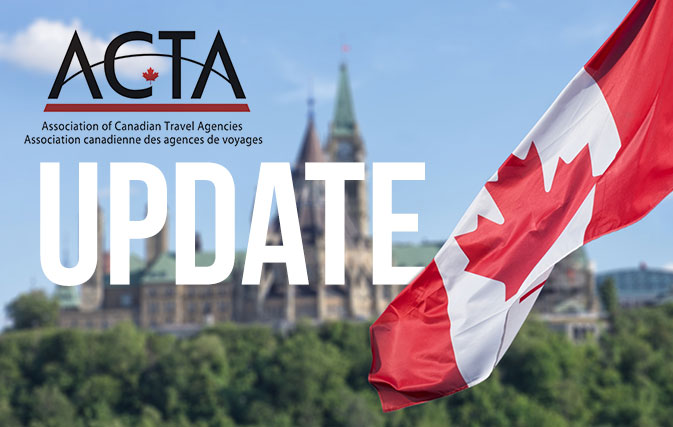TORONTO — Few stats are cheering these days but here’s one takeaway from yesterday’s ACTA webinar that at least bodes well for the future: 87% of Canadians say they miss travelling.
And when that pent-up demand finally starts to trend, information will be key to reassuring Canadians looking to travel – and that’s where travel agents come in.

That’s the word from Jennifer Hendry, Senior Research Associate with the Canadian Tourism Research Institute, who took part in ACTA’s webinar for The Conference Board of Canada.
Also featured in the webinar: MP Michelle Rempel Garner, who has been outspoken during the pandemic about the need for the federal government to step up with sector-specific financial assistance for Canada’s airline and travel industries.
OUTBOUND TRAVEL INTENTIONS
“It’s no secret that Canadians miss travelling,” says Hendry. While the vaccination rollout is heartening, it will take months for the vast majority of Canadians to get vaccinated, and that means Canada’s travel recovery won’t really start until the very end of 2021 and into early 2022, she says.
According to the Conference Board of Canada’s Q2 survey figures, three-quarters of Canadians without travel plans cited COVID factors as the primary barrier for travel, up from two-thirds in the previous survey earlier this year.
Three-quarters of respondents said they won’t travel internationally until they are vaccinated. And two-thirds of respondents said they wouldn’t consider flying internationally (66%) or to the U.S. (65%) until at least late 2021.
Travellers surveyed also reported a high level of concern for COVID exposure, although the top-box score for the U.S., one of the most often-cited destinations of concerns, had dropped from 83% down to 69% since the last survey. The vaccination rollout in the U.S. now has 40% of Americans with at least one dose, and 25% have been fully vaccinated.
ACTA’S PRIORITIES
With the Canada Recovery Benefit (CRB) set to start winding down in July, and with no sector-specific assistance for the travel industry in the federal government’s 2021 Budget, ACTA’s lobbying and advocacy priorities over next 30 days are:
- Extend the critical CEWS, CERS and EI programs at maximum support to the end of year, or 90 days after travel restrictions lifted
- Maintain the CRB benefits at the current $500/week level to the end of 2021, or 90 days after travel restrictions lifted
- Extend the RRRF (Regional Relief and Recovery Fund) application deadline and other liquidity programs (CEBA, HASCAP, etc) to the end of 2021, or 90 days after travel restrictions lifted, and expand the accessibility to sole proprietors for programs where this criteria is not in effect.
- Extend the CRHP (Canada Recovery Hiring Program) to the end of 2021, or 90 days after travel restrictions lifted.
In yesterday’s webinar ACTA President Wendy Paradis said ACTA is also focused on highlighting the gaps with the protection of commissions.

While Air Canada and ACV have been making positive adjustments to refund policies, in the wake of Air Canada’s April 12 announcement of its financial assistance package with the federal government, gaps in commission protection with other airlines and suppliers remain, says Paradis.
“HOTEL QUARANTINE IS WINDOW DRESSING”
MP Michelle Rempel Garner joined yesterday’s webinar with a message for agents: Make your message heard with MPs, loud and often.
“It is so important for each and every one of you to be talking to your MP” about the perilous situation facing the retail travel sector, said Rempel Garner, adding that there’s “a bit of a disconnect sometimes” between the government officials making the decisions, and the travel agents struggling to get business.
She empathized with what the retail travel industry is going through. “It’s a real honour to speak to you today,” she told webinar attendees. “With this prolonged period of uncertainty … I can’t imagine what it’s been like for you.”
Rempel Garner has been vocal about the need for sector-specific assistance for Canada’s airline industry.
At the webinar yesterday, she also called out the federal government for its lack of re-start plan for a safe reopening of Canada’s borders post-pandemic.
“I feel the the Canadian government’s response in terms of travel has always been reactive,” she said, adding that the lack of a plan with benchmarks in place for travel’s re-start is also concerning.
The flights bans, most recently for India and Pakistan flights, “are a mark of failure to put in stronger systems” ahead of dire third wave outbreaks in those destinations, she said.
About the hotel quarantine requirements, Rempel Garner called the hotel quarantine “window dressing” and said the rule hasn’t been anything that has materially changed public health outcomes for the better in Canada’s fight against COVID-19

